Here is the english version of my now famous “Fallait demander” ; now available as a book with other stories :
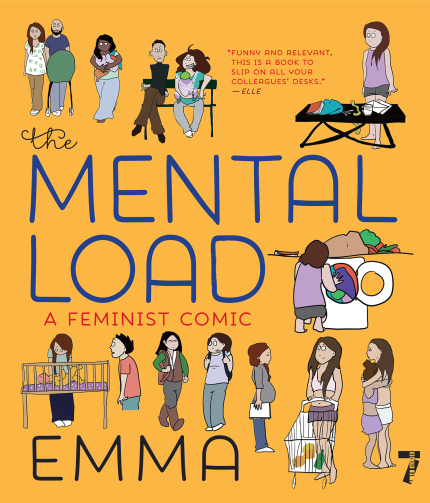
Orders available here or here or here ^_^
Thanks Una from unadtranslation.com for the translation 🙂
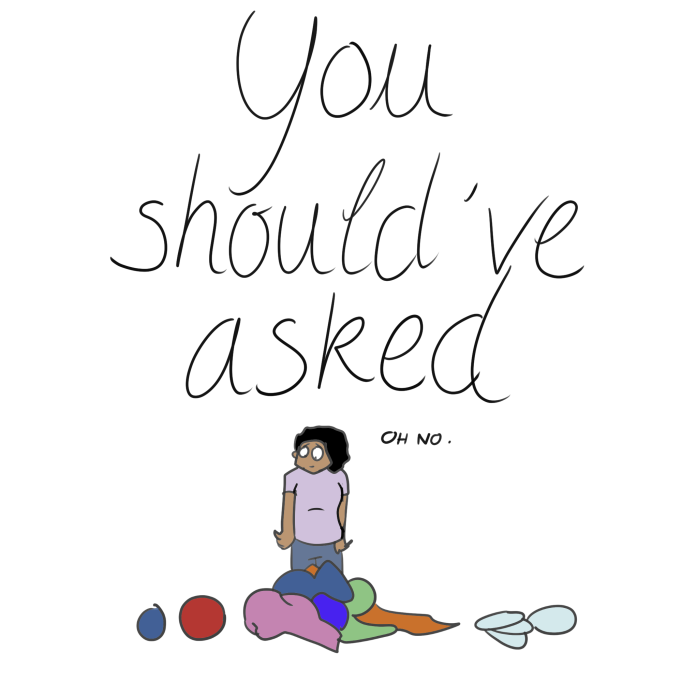
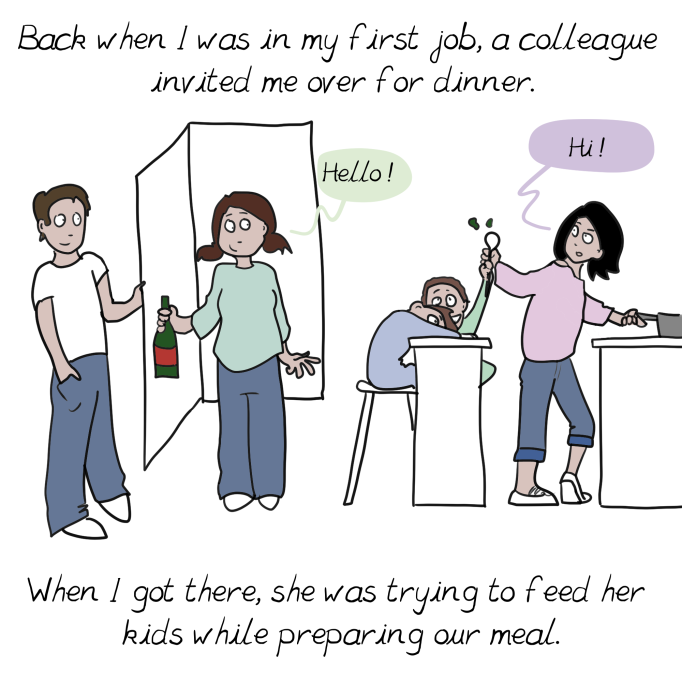
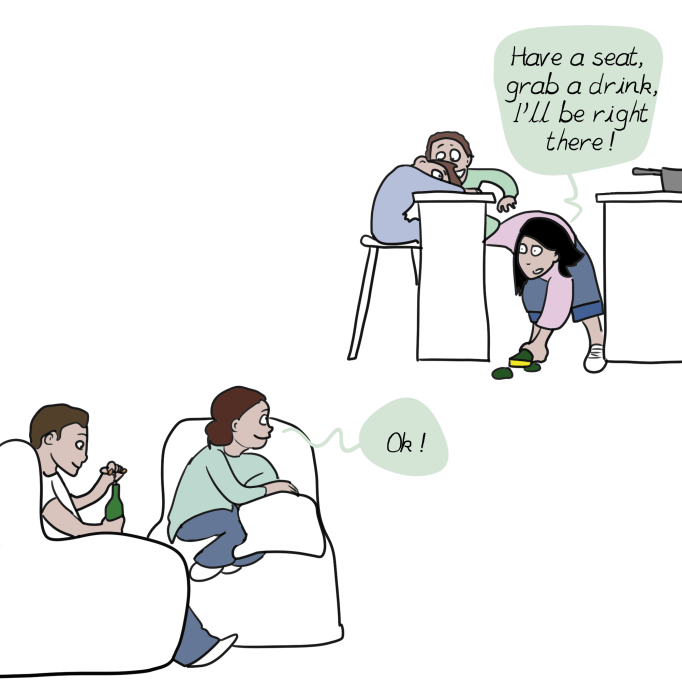
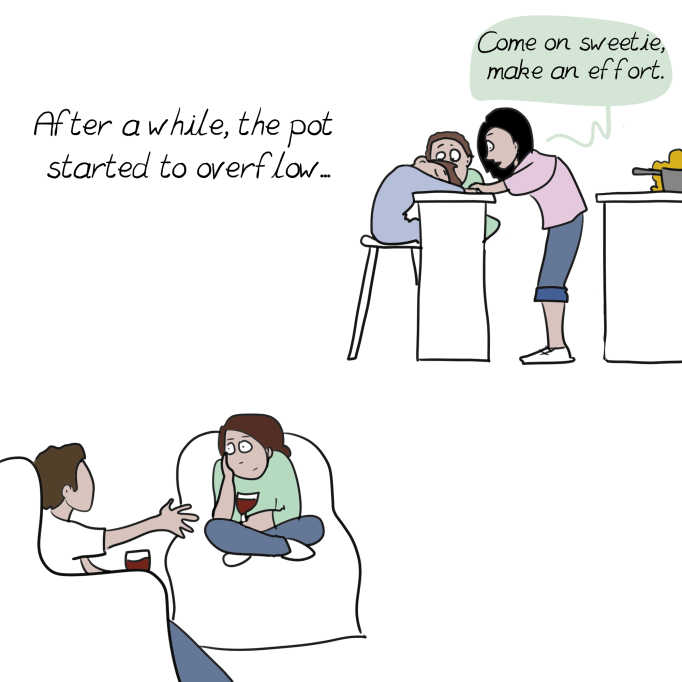
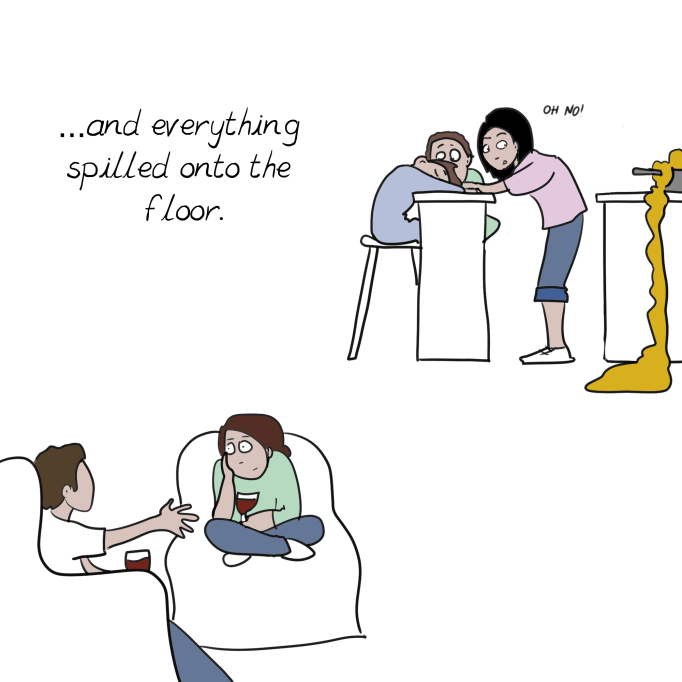
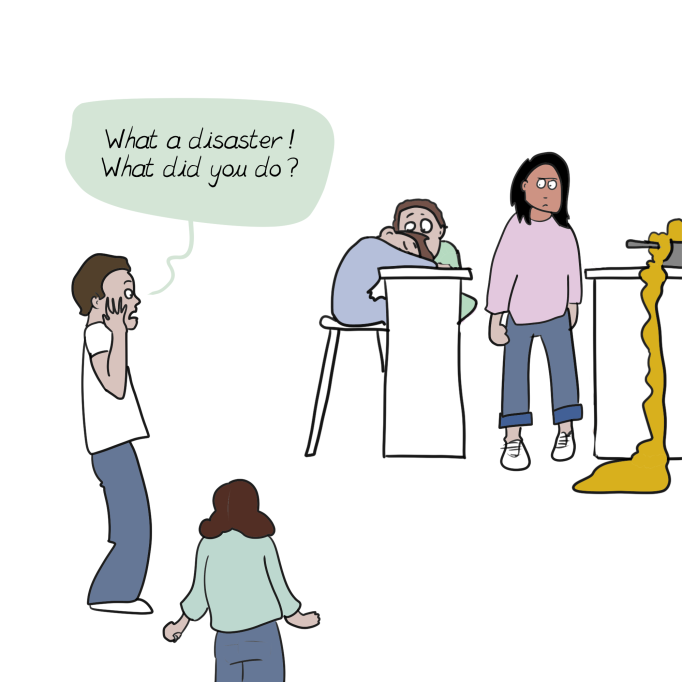

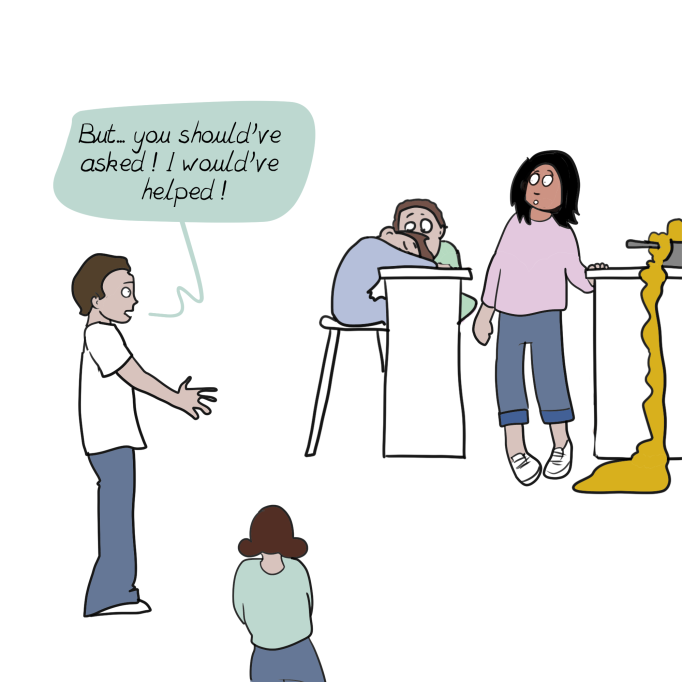
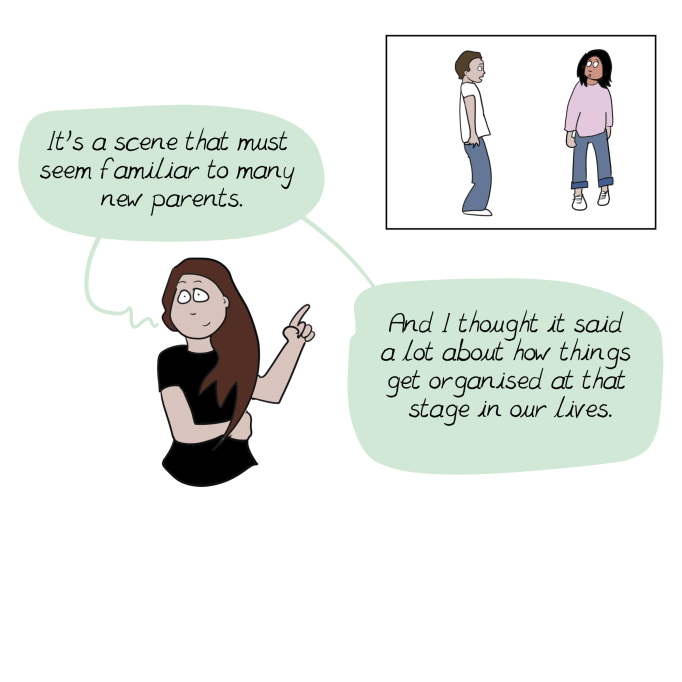



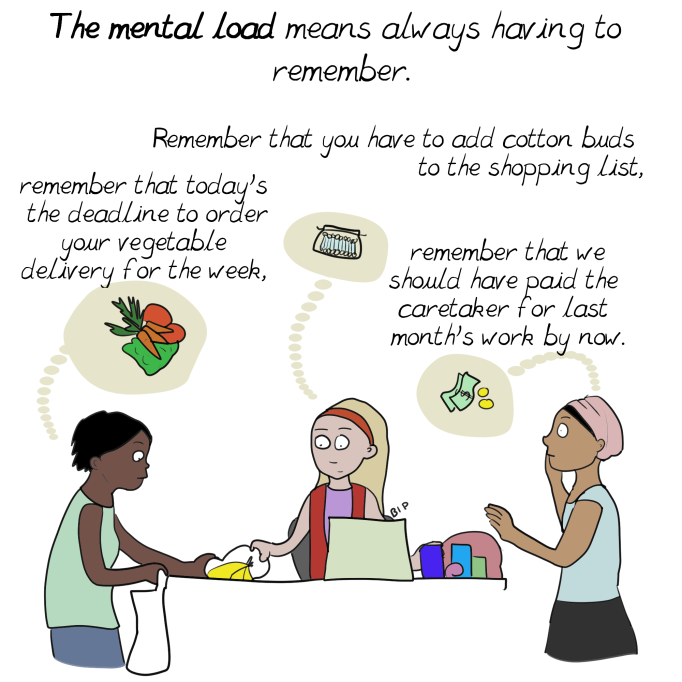
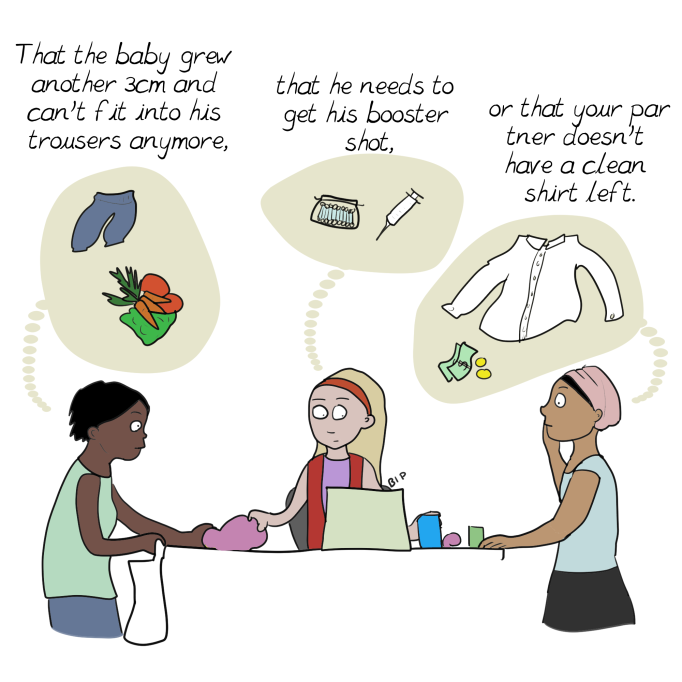


























Here is the english version of my now famous “Fallait demander” ; now available as a book with other stories :

Orders available here or here or here ^_^
Thanks Una from unadtranslation.com for the translation 🙂








































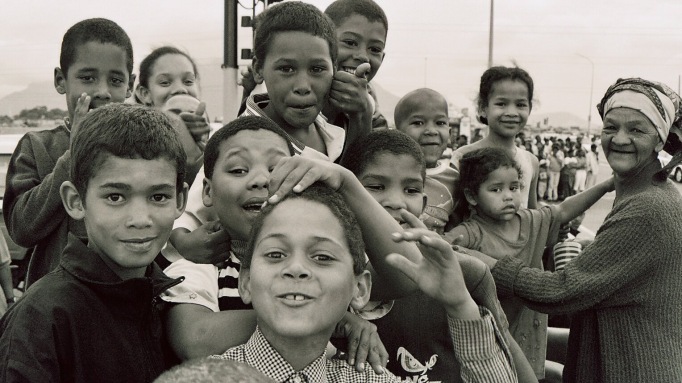
The first time I ever really spoke to a white person, I was in my second year of high school. I saw them in my first year, but I was too intimidated to try and speak to one because they were so different to me, and I had been taught to fear them. I had always been more comfortable around black and coloured people, but I managed to find some good white friends all the same. The first time I was called hotnot was not the last. It usually happens in farming areas, or when I do something to upset older white people (like taking the last packet of chips in a shop). I even got called kaffir twice when I ran into a drunk white girl in a club bathroom in Stellenbosch, and a drunk white guy in the parking lot of McDonalds in Stellenbosch. Once I was even called ‘n stuk bruin kak (a piece of brown shit), which actually made me laugh at the time because I was a drunk student, and I had never heard such a visual insult before. I only got upset afterwards.
So, having been constantly reminded for my entire life that I was not white, imagine my surprise when I got called boer and uMlungu by black people. I, as a light-skinned coloured, am constantly being reminded that somehow I am more privileged because I am whiter and so I have enjoyed the fruits of Apartheid more. I grew up, and still live, in a poorer predominantly coloured community which is about 70% coloured and 29,5% black (based on no data other than what I see). But if you had to line me up with others with no clue as to our background, I am still seen as more privileged than darker-skinned coloureds from Plattekloof and also more than black people from Durbanville. All this just because I am light-skinned, which somehow makes me a person who does not understand struggle.
I entered the social sciences to try and make a difference in communities like the one I live in. But I soon realised that I was considered an outsider to most of these communities, because of the colour of my skin. In my first job, older black policy-makers and civil society members thought it was okay to tell me that I have no heritage; I have no culture; and that my ancestors did not fight for anything but still got to benefit from the deaths of black people during Apartheid. In my second job, one of my black colleagues thought it was okay to tell me: “I don’t like coloured people; but you’re not so bad for a coloured person”. As if that was somehow less racist than if a white person had said: “I don’t like black people”.
There are very few coloured people that I meet on a daily basis on a professional level, since in the southern suburbs of Cape Town, I mostly encounter black and white people. Those coloureds that I meet there can rarely speak Afrikaans and are somehow more acceptable than me with my cape flats accent, gam (ghetto) mannerisms, and colonial mentality for using a language I grew up with (a language my forefathers created by the way).
So many things that I have been told/called over the years are really not okay, but I am constantly outnumbered when I try to speak of them. Whenever I speak about issues that affect coloured people, or try to make people aware of what it is like living in a coloured area, people turn a blind eye because they think they already know. They think they understand, and they say “but black people have it worse, so what are you people complaining about?”, and then I sometimes get told that “coloureds are greedy” and “they just want it all”.
Very few people acknowledge coloured people as a distinctive race/culture with unique experiences of exclusion and suffering, as well as unique experiences of community and cohesion. As a people who are confused about their identity, and who are hurt and frustrated at being unheard and unrecognised. No one wants to acknowledge that coloureds are different from blacks and whites because that would mean that they would have to actually put in the effort to try and understand the coloured culture, history, and heritage.
When I went to Europe last year people immediately knew I was not white. Even though I am light-skinned, most of them called me black without wondering if that was the correct identifier. I did not care at the time since it just made it easier for me because I thought I was going to have to explain the entire South African history to everyone if they asked. So I just went around identifying myself as black when people asked. Then one French taxi driver disagreed with me and told me that I must be mixed. I sighed and thought, ‘here we go’. I told him it was a long story, but he still wanted to know. I tried to explain that I haven’t had a black or white ancestor in about 150 years. That initially my ancestors were mixed, but then we were lawfully kept in separate areas. I explained about the mixed marriages act and the group areas act, and how the mixed mixed with the mixed and created a new race yada yada…I’m no more mixed than the Latin Americans are. If I were mixed then surely I would be accepted by one or both of the races right? I would have been brought up in one of the cultures? But I’m not, and the only culture I know is the coloured one (which doesn’t exist according to some people). But the driver disregarded everything I said and proceeded to tell me that my identity is mixed. And that is just one encounter of people telling me how I should identify myself during my entire lifetime.
When Wayde van Niekerk became successful, suddenly coloured people were lumped in with black people. When the government wanted to know our BEE statistics at work, suddenly I was lumped in as a ‘black female’. But when I applied for several jobs that were looking for previously disadvantaged candidates, suddenly I was classified as coloured and twice that I know of the job was given to a less-qualified and less-experienced black person. I knew these two people and both were shocked that they had gotten the job over me. One of them even said: “I bet they thought that, since you’re white, you can find another job easily.” And I couldn’t help feeling a little bitter. When it really counts I get lumped in with ‘white’ and I am assumed to benefit from the privilege of being light-skinned; even though no white person has ever confused me for anything other than coloured.
But I swallowed the bitterness and kept moving. I wasn’t angry, I was just sad that coloured people could have their identities so easily decided for them/taken away from them. That’s why I was so happy when awareness platforms like Coloured Mentality started doing the rounds. I was happy that we were finally having this conversation, even if so many people disagreed. At least there was an effort to acknowledge our existence. But with the increase in awareness has come an increase in conflict. Now some black people want to know ‘why we want to be separate’ and ‘do we think we’re better since we don’t want to be classified as black?’ But it’s not about that. We need to have an acknowledgment and expression of who we are as a people. I do not like the forced Apartheid term ‘coloured’, so I prefer to think of us as Kallits and that we are just another tribe of black with our own unique culture and experience, just like the Xhosas and the Zulus are unique. That’s just the way I like to think of it, but others have their own ideas. The important part is that we needed to start this conversation and we need the debates to be constructive.
The reason why things are so heated in Mitchell’s Plain is because of a frustration bred from years of not being heard, and not being acknowledged or understood. The media is deliberately trying to focus on the racial aspects of it instead of trying to see it for what it is: a community trying its best to protect its way of life, and to be law-abiding citizens who have been legally and patiently waiting their turn to reap the benefits of democracy, who are now becoming frustrated by those who are taking the law into their own hands. Yes, there are some racist slurs, but the majority of the community are just trying to get to work so that they can continue to survive in a country where no one will ever go easy on them. Now their community is being ransacked and they can’t understand why destruction, vandalism and criminality are so easily rewarded, when so many of them have been following the rules, trying to be patient and peaceful, and yet never getting rewarded. Still they are referred to as skollies and gangsters, when most of them are decent, hard-working individuals just trying to improve their lives without getting shot by the real gangsters in their areas. Yet, they get referred to as the very thing they fear.
Coloured people have been patiently accepting the scraps, if they are lucky enough to get them, and most of us just try to get along with everyone. Coloured people have changed their accents to a ‘model C English’ one, or they learn Xhosa and Zulu so that they can be accepted and survive in the workplace. But either way they are seen as ‘lacking’; as people who need to change something about themselves in order to be acknowledged.
Everyone always wonders why coloured people are so angry, but rarely do people think that it is because we have to constantly live in a country that says “I hate coloureds” without consequence or guilt. This sentiment of hate is so common that coloured people have even been saying it amongst ourselves. Because we have little positive representation of ourselves, and because of the way we are portrayed in the history books, in the media, and by people who have no idea what it means to be coloured, we have developed a self-deprecating attitude and an inferiority complex. People often say that coloureds are the most racist in South Africa, and perhaps that is true. But if it is true, it is because we have been so stereotyped that it becomes a natural response. Many coloureds are negative about all races. Often we lump our own race into a stereotype and believe it. There are so many of my coloured peers, including myself, who sometimes say “Jare, sometimes I really don’t like coloureds”. We visit our neighbours, families and friends and you hear them saying “Blerrie kallits, hoekom moet hulle altyd só wees?” (Bloody coloureds, why must they always be like that?). So if many of us have this internal racism, is it so strange to think that some of us are external racists as well?
This is a symptom of a larger problem: the lack of acknowledgement of our existence and experiences. If we are not acknowledged, do we even exist? Now these issues are finally seeing the light of day in the media, but of course people want to focus on the racial aspect. But the question is: how can coloureds be racist, if we are part of all races? If we do not have our own identity or race, but are instead lumped into any category for specific situations, then we belong to all categories don’t we? We are everyone and we are no one. So any expression of outward racism is only a reflection of the inner racism we feel towards ourselves. The racism that we were taught to feel towards ourselves because we are somehow ‘lacking’. Lacking whiteness, lacking blackness, lacking culture, lacking unity, lacking a codified or oral history, lacking the acknowledgement that we also belong in this country.
I’m not saying I condone any of this or that I speak for all coloured people, I’m just trying to provide a perspective that will help some people to understand the coloured mind-set, since very few have made that effort. Tolerance comes from understanding, so in order to tolerate and get along with one another, we first need to understand one another. And Kallits need to put in the effort of understanding themselves first, and learning to stand up proudly and say “I exist. I am here. I matter.”
People are always very confused about my religion. Everyone feels the need to put me in a box and to categorise me. I’m not a religious person, but I would not classify myself as an atheist either. And for some reason it genuinely upsets people when I tell them that I am not anything; I merely exist. So for now, let me try to explain it. Keep in mind that I hate arguing about religion and that if you don’t want to hear what I believe; you should stop reading right now.
For those of you who are still reading, I bet you want to know if I believe in God. Of course I believe in God. How can I not believe in God? If I didn’t believe in God I would be living every day in despair. I just know it by another name. I just know it as a thing, not a person.
When I say ‘God’ I am referring to human consciousness, or collective morality, spirituality, the soul, the universe, or simply empathy. Whatever it is, it connects us all. It gives us the ability to understand one another, not only in language, but in intention. It gives us the ability to examine the deepest and most inner workings of each other’s minds.
The problem arises when people try to personify that feeling and give it mannerisms, intentions and desires. Out of ignorance, people take that feeling of connectedness, and say it is God speaking to them. They try to give their consciousness a conscience.
If you really think about it, you don’t need a book or a person to tell you that killing is wrong. If the only reason you are not going on a killing spree is because you are afraid of eternal damnation, then you should probably re-evaluate your personal moral code. We are all born with that morality. We are born knowing what is unforgiveable. Have you ever noticed a child hurt her/himself and cry; then that same child hits a dog or hits its sibling and the child realises that it is inflicting pain. The child makes the connection between its own pain and the pain of the dog or the sibling and sees the similarities between him/herself and the other. The child does not need to be told that what he/she is doing is wrong, the child comes to realise it on its own. Whether it takes one or five punches for the child to realise it is inflicting pain, the child inevitably realises that what he/she is doing is wrong. That is ‘God’, our consciousness, our empathy telling us what is right and what is wrong.
God ‘tells’ you that killing is wrong the same way that anger ‘tells’ you to punch a wall, or that happiness ‘tells’ you to laugh. It is an impulse that is part of nature. God is a feeling that we are all linked. Even animals know God. How could they not? They have a consciousness don’t they? You can see in their eyes that they have souls and that they are aware. They are aware of their surroundings, they have a purpose, and they are a part of a whole. Did God give them their purpose? Yes. If we are talking about God as a guiding thought and emotion that tells you what is good and what is bad and how you should act.
If you think about it that way how can you not see all humans as connected, as bees in a hive where ‘God’ is the Queen Bee except that it is not a person but an urge, an imperative that we follow.
However, instead of embracing God, embracing this connection, this consciousness, this empathy; people try to claim it for their own. They create denominations within denominations; they create and write different books, different sets of rules to distinguish themselves. They try to stray from the hive and claim individuality. They claim that God ‘speaks’ to them all differently. They think they all have a personal relationship with God. And instead of trying to understand what makes them the same as everyone; instead of trying to see what similarities we all have across gender, racial, ageist and sexual divides; people try to discover what makes them different from others. This is because we are obsessed with being unique.
Now, there is nothing wrong with being unique, as long as you realise that it is your personality that makes you unique – not your beliefs, not your actions, not your ideas – only and simply your personality. In essence and on a basic instinctual level at the youngest age we are programmed with morality. We are born knowing what is right and wrong. The problem comes when people think they know better than their own programmed morality and try to ‘teach’ people what the right and wrong way of thinking is. If a child grows up in an abusive or sexist home, that is what they become. If a child is forced to wear pink or blue and is only given feminine/masculine toys, they will grow up thinking there is a distinction between genders, rather than realising what ‘God’ (consciousness, empathy) is telling them; that we are all cut from the same cloth. If a child constantly gets told that a certain race is worse than another, or that homosexuality is a sin, they will incorporate that into their moral code.
When I think back to my childhood I realise that I was friends with everyone and I saw everyone exactly the same. It was my primary school history teacher who taught me about Apartheid and pointed out the differences in race. It was the community and parents who called my friend a ‘moffie’ because he was a bit gentler and more soft spoken. And it is amazing how calling a child that at a young age impacts how that child sees him/herself. But if children were left alone with ‘God’, left alone with their own consciousness, empathy, morality; they would never have learned to divide people into categories, factions, or denominations. The problem comes when people personify their morality and add their own thoughts, intentions and ideas onto it (or even worse the behaviour, thoughts and ideas that they learned from others onto it) and then try to influence or teach the children about ‘their God’ and ‘the rules of their God’. It’s about ego; associating yourself with an idea, claiming it, and defending it. Your ego defines your personality, but while you search for what makes you unique, you still feel that need to be connected to people, and so you try to teach what you discovered to others, to make them more like you. When in actual fact, if left alone, and not influenced, not manipulated, and not indoctrinated, children would come to learn about God in their own way.
Just as children instinctively know to suck on their mothers breasts; they will instinctively discover their moral code. And wouldn’t that be a better way to live? Wouldn’t it be better to return to our basic human nature? Wouldn’t it be better to be free of influence and manipulation? Wouldn’t it be better to live according to our own ideas and our own free will? Isn’t that, after all, what makes us human?
“I am not what happened to me, I am what I choose to become”
– Carl Jung.
Too often I have noticed that people dwell on the bad experiences of their lives and as a result they tend to be more emotionally unstable. Most would say that the answer to a better life is to learn to control your emotions. However, I disagree. I think the answer lies in recognising your emotions, understanding the whole reason for why you feel a certain way, and then allowing yourself to feel that way. Pulling back from a certain emotion that is threatening to overwhelm you usually just means that the emotion is pushed to below the surface, but is always there, threatening to emerge.
People do not usually attempt to understand why they feel a certain way, or whether their reactions have become a pattern. We must constantly be aware of ourselves, our behaviour, our thoughts, and our reactions. If we don’t, we become unpredictable even to ourselves and we lose sight of who we are at the present moment and how we got that way.
Anger is the emotion that is the most confusing. In my opinion anger is not even an emotion in itself. I believe most people get angry because of a combination of the following emotions:
– They are frustrated that nobody understands or is willing to understand them or listen to what they are saying.
– They are impatient to get what they want.
– They are afraid of weakness or showing vulnerability.
– They have feelings of insecurity and fear that others will not accept them.
– They feel hurt and lonely and that they do not belong in a certain situation.
– They have feelings of self-resentment and rather than punishing themselves more, they punish others with an explosion of emotion.
When you start to feel angry, try to recognise whether you are not feeling some of these instead. It becomes difficult to realise that there is something behind the anger, because anger is such an overpowering feeling. Most people don’t realise how difficult it is to stop anger in its tracks. If you are not prone to bursts of anger yourself, you will not understand the physical side-effects of anger. In my experience anger not only means that my body starts shaking, but also that my tongue starts to taste funny, my head gets extremely hot, my heart starts racing, and my vision becomes narrower so that I only focus on what is in front of me.
Therefore, instead of trying to stop the anger and trying to control my emotions (which usually just makes me more angry), I am currently trying to recognise and embrace the emotions behind the anger. I have found that when I do this, I can keep a calmer head and address the sub-issues. It does not always work and sometimes I still end up shouting, but at least I am shouting about how I am really feeling, rather than just shouting nonsense that tends to hurt others.
On the other hand, sadness is the most easily recognised emotion. You don’t need to concentrate hard to find the reason why you are feeling sad. Often, we try to stop this emotion because we feel that we are being unnecessary and that it is stupid to be sad about something that we cannot change. For this reason, most people try to control sadness and push it down, because it is an emotion that supposedly implies weakness. But if you do not embrace the sadness, it usually lasts a lot longer. If your body is telling you that you are feeling sad, or hopeless, or defeated and you instead try to force yourself to be happy; your body will fight against you and this can not only be of detriment to your physical health, but you can also become quite depressive and the sadness will still try to escape even if you’ve been pushing it down for a week and you are now genuinely happy.
It is dangerous to try to control your emotions, because experience tells us that emotions usually have more control over us than the other way around. I recognise that it is important, especially in the workplace, to try to maintain a stoic persona, to not show that you have been affected by something, and to present an image of leadership or strength that is unshaken by certain problems. However, do not take this attitude home with you. Do not try to present this image to the inner workings of your mind or the private corners of your home. It is important to allow these emotions in when you are alone, because denying them can lead to a denial of your own reality. You can fool yourself into thinking that the person you want to be is how you actually are and can then show disappointment and anger at yourself when your real self emerges.
For this reason, attempting to control your emotions can lead to self-delusion, decreased sense of self-worth or self-esteem, as well as disillusionment with the world around you. It is far better, in my opinion (that you don’t have to believe because this is a blog not an academic journal), to find the time when you are by yourself to stay in reality, to admit what you are actually feeling, and to embrace those emotions.
However, be mindful that when I say to embrace your emotions, I don’t mean that if you want to throw a tantrum in front of your colleagues then you should do so. I mean that you need to recognise what you are feeling and acknowledge it internally. Perhaps spend five minutes at the end of each day in absolute silence, breathe evenly, and instead of thinking, allow yourself and your body to feel all the emotions that you repressed during the day. That way you can let them out before bed and wake up feeling more positive and healthy in the morning. This not only protects your psyche and body from the tension of repressed emotions, but also protects those around you from having to suffer the explosion of your unexamined emotions the next day.
“We can’t control what thoughts and emotions arise within us, nor can we control the universal truth that everything changes. But we can learn to step back and rest in the awareness of what is happening. That awareness can be our refuge”
– Sharon Salzberg.
It might not seem like it can make a difference, but that tiny change in thought and attitude can be the difference between a good day and a bad one.
Today I was once again questioned about what my plans are for the future and where I am planning on working next year. One of my friends suggested a company in Durban, and I replied that I would prefer to stay in Cape Town because I am reluctant to go somewhere my boyfriend cannot follow. My friend then remarked that I was being stupid and that if her boyfriend had to get a job in England she would tell him to go.
“Would you wait for him?” I asked.
“No”, she said, affronted. Yet, she said it in a way that suggested I was being silly for even thinking that.
This got me thinking about relationships. Maybe it’s because she has the brain of an economist, and maybe it’s because I’m behaving like what she would call a hippie; but I found something profoundly wrong with her casual dismissal of someone she loves. Earlier in the week I had the epiphany that I would never choose my career over my family (Family meaning my boyfriend and our potential future children). It is not even something I have to think about, and it’s not something I will ever regret, even if our relationship were to end. It’s simply something that I will never do; better my income prospects at the expense of my relationship. I would rather be unemployed for years than do it. It might seem incomprehensible to many, but I have seen first-hand what being too successful and too work-oriented does to marriages and families.
My friend went on to talk about her future children and how she wanted them to grow up in a privileged home, to have a better life than she had. My initial thought was how she intends to have children if she would give up her boyfriend of three years for her career? My second thought was that I would not want my children to have a life more privileged than mine. I want them to have an above average education; I want them to have parents that love them; and I want them to be happy and be free to live their lives the way they want. I do not, however, want my children to have all the material things they think they want. I would be happy living in an average home, with enough money to give my kids a good life, but I would not ensure that they want for nothing. For if they want for nothing, how would they ever learn to work for what they want? How would they ever learn independence and self-dependence? I want my kids to be comfortable in life, but I refuse to teach them the value (or non-value) of material things. My third thought was that people always place more value on their children than on their partners.
This seems silly to me. One thing I have learned from my parents’ divorce is that eventually your children will either end up hating you, or they will move on to lives of their own. When that happens, is your marriage or individual life strong enough and full of enough happiness that you will not feel empty inside when this happens? The strongest marriages are always the ones where the parents still do things together regardless of their children; and where they talk about issues and come to an agreement, even if its one the children do not agree with. You have to have a life outside your children.
Everyone wants to be rich and everyone wants to have a better life, yet they do not stop to consider the blessings in the life that they already have. I say blessings, not to appeal to the Christian readers, but because that it is the minimal that allows people to live in relative safety. Most people do not have this. Many Christians who are supposed to be happy with the minimal are the ones who aim to improve their lot and are not satisfied with the love they find with their families and their God.
The problem with the world of today is that there are too few people who would let go of their individual ambitions and give up the comfort of their lives to be happy. Most people think they are too busy to be happy. Most people would not know what to do with themselves if they stopped working, drinking or watching TV. People are becoming too materialistic and do not think of the effects their actions have beyond themselves. If you think you will truly be happy by having the only goal in your life be to improve your life then by all means continue. However, remember that happiness is not a goal that happens when you are ready for it; it is a process that you continually have to think about. When deciding something, do not first think “which job gives me more money?” or “will that girl be better in bed than the one I already have?”, but first think “will this decision make me happier?”.
If ever I fall into this trap, I will re-read this blog and remind myself of the importance I place on values over value. Here are a few lessons to take out of this:
First, appreciate what is in your life. If you are not struggling to make ends meet, do you really need to move to a bigger house? Try to be satisfied with enough. And if you are going to improve things, do so for quality, not for flashiness. If you want, you can get an HD TV because it is better quality, but do not get a sports car if you can get a fuel-efficient one.
Second, find time to do things that make you happy. Get to know yourself and figure out what your interests are. If you had absolutely nothing to do for the weekend, what would you do to make yourself happy? Anything goes, whether its sleeping, reading, eating, whatever. As long as it is something that takes your worries away for a while.
Third, find the things in life that you truly care about. This is important, because it helps you to set your limitations. How far would you go? Set up a set of norms and values that influence your everyday decision-making. It is not too late to start. An example would be caring enough about small-business owners that you would not build a supermarket in an area that could destroy livelihoods. Or even caring enough about your work ethic that you would not endorse something you do not believe in.
Fourth, find someone in life that you would do anything for and who you love unconditionally. And appreciate them. By this, I do not mean your parents or your children. Too many people get married for the sake of getting married, or have partners of convenience. You cannot start a family with someone that you only love 50%. This love can be unrequited or equal; as long as you can love someone more than you love yourself so that when everything else fades, they are the reminder that you can have a life outside your children and your work.
Fifth, when you have done all of the above, then you can start increasing your ambition. You can now do something that you find personally fulfilling, whether it is giving back to charity, starting your own company, aiming for a promotion, or making moves that will increase your lot. Only after you have the foundation for knowing yourself can you be comfortable with improving yourself.
But never ever make a move without considering how it will affect the people around you and the people you love.
This is an issue everywhere in the world. Many people do not attempt to walk in the shoes of others or even to give them a second thought. I love this blog post because it shows that it is never too late to open your mind and your heart and thereby discover something new about someone else and about yourself
“Manliness consists not of bluff, bravado or loneliness. It consists of daring to do the right thing and facing consequences whether it is in matters social, political or other. It consists in deeds, not words.”
― Mahatma Gandhi
Men are supposed to be big and strong. They must take care of their families and be upstanding members of the community. They must kill spiders for their children, braai on Fridays and work in the garden on Saturdays. They are supposed to be private individuals, who keep themselves to themselves. They must fix the plumbing, declog the drains, be otherwise handy around the house and know how to fix anything on a car. They must discipline their children, drink brandy and talk politics, while they smoke cigars in the front room with their colleagues. They must be respectable, honour bound. They must be the sole breadwinners in their families, and they must pay for dates, luxuries and anything their women need.
Or at least that was the stereotype 100 or more years ago.
Men in contemporary society seem to only have maintained the bad attributes of what it means to be a man. These being: indifference towards their children, drinking, womanising, and being proud to the point of delusion. Yet, how can they maintain this pride in being a man when they are not men in so many other ways?
Boys today are very different. I say boys and not men, because these boys do not make up all the men in society, but they are becoming more and more common, and are especially prevalent in tertiary level institutions. They are dressed better than women. They gossip more than women. They love their mothers more than their wives. They do not give their all to their families because they enjoy maintaining their independent identities. They care more about the previous night’s soccer match than the crime in their community. They have no idea what grows in what kind of ground in the garden; most do not know how to change a tire, or even what a wrench is. They go out clubbing, trying to pick up women that they can add to their list of conquests and never seem to understand the consequences. They make babies wherever they go and never take any responsibility for them. Then, when they turn 30, they think they would like to settle down; not realising that the women they want will not be satisfied with a grown-up boy who still has his mother do his washing and who plays video games for a living. However, the women that these men want are always the same. They want someone like their mothers. They want a woman who can cook for them, clean up after them, take care of the children, and do other nurturing things. They want a housewife.
Now let me ask you something? These men who are not real men, who do not fit the stereotype of a real (Bar One, 25 hours, rescue cats from trees, rescue babies from burning buildings, admirable, big strong) man; how can they possibly think that they deserve a stereotypical woman? These modern-day metro men want fashionable, ladylike, feminine housewives. They are always the ones going around saying that women belong in the kitchen, or that a woman’s place is beside her man, or that the only useful thing a woman can say is nothing. They want these subordinate women, yet have no problem adding her income to the household, or having her pay for half on dates.
Men need to change their perspectives of how modern-day society works. Not only do most women do the housework or hire someone to do it; work for a living, often earning more than men; look after children or hire someone to; But they also do the things around the house and the community that men should do.
When looking at it from that perspective, what use has a woman of a man? When these boy-men can finally understand that these independent women only have men in their lives for love and companionship rather than need; that is when they will finally understand how useless their stereotypes are. Hopefully that will be a wake-up call for them when they realise that in order to have a real woman, they need to be a real man. Now I’m not saying that men should all behave a certain way. What I am saying is that no one has the right to stereotype women, but especially not a boy-man who cannot even adhere to his own stereotype.
“Now in our culture we’ve been trained for individual differences to stand out. See you look at each person and immediately see they’re brighter, dumber, older, younger, richer, poorer and we make all these dimensional distinctions, put them in categories and treat them that way. And we get so that we only see others as separate from ourselves in the ways in which they’re separate. And one of these dramatic characteristics of experience is being with a person and suddenly seeing the ways in which they’re like you and not different from you. And experiencing the fact. That which is essence in you , which is essence in me is: The One. The understanding that there is no Other; it is all one. I wasn’t born Richard Alpert, I was born human and all my separatist tendencies were born along the way” – Richard Alpert.
I do not totally agree with this quote but it is quite poignant and useful for understanding society. Yes, we are led to believe that we are all different and unique, but these differences are to be celebrated and not criticised. Do we not all have at least one thing in common? The fact that we are all human?
We were all born equals; it is what we have been taught. It is our circumstances and our upbringings that make us all different. To quote Andy Rooney: “Everyone starts out being an atheist. No one is born with belief in anything. Infants are atheists until they are indoctrinated”. This is the same way that children do not realise that their friends are from a different race until someone mentions it to them. If we did not make each other aware of our differences, we would hardly notice them.
Yet, when I mention religion (or in my case atheism) it’s like I hit an automatic “defensive nerve” and people start acting crazy. All I’m saying is that I was not raised into a singular religion; I did not grow up reading the bible; I was not taught to pray before I went to bed or before I ate; so therefore I do not believe in a deity.
You cannot be upset with me because I have had a different upbringing from yours. You might think your faith is strong, but I strongly believe that if you were raised the same as me, you would also be atheist. I have always wanted to believe in something, but I have never felt any greater force watching me except Karma and the Sun.
So if you can understand how my experiences affected my beliefs, can you not understand that we were all born believing the same thing and were raised into different religions, classes, poverty lines, languages, races and belief systems?
It is those that wish to call themselves our educators who keep us separate from each other. I do not believe they do this on purpose but we need to realise that it is being done. Our parents, religious preachers, teachers, peers have all influenced us to think as they do. The scary questions are: If they themselves were taught these things by others, and those others by others before them, then who were the original influencers? And why would they point out the difference between a Christian and Muslim, a black person and a white person, a poor person and a rich person? More importantly, what was the end goal in creating such a divided society?
The last and scariest question is: WHY ARE YOU GOING ALONG WITH WHAT THEY SAY?
For example, Just because your mother tells you that your friend is white and that the white people suppressed the black people more than 20 years ago, are you going to stop being friends with a white person?
Think carefully about your answer. I am not writing this because I believe I am above what I accuse you of. I write this because I am too indoctrinated to break lose. Yet, that does not stop me from trying. My purpose is only to create awareness so as to help the rest of you stop the hate before you become like me.
I believe that if we had all been raised by the same parents in the exact same way, then the only things that would be different about us are the unique characteristics of our personality. And to me, those are the differences to be celebrated.
So celebrate your most essential differences, look for similarities and above all uphold the ideals of the bohemian revolution: speak the truth, find beauty in everything, strive for freedom, and love everything.